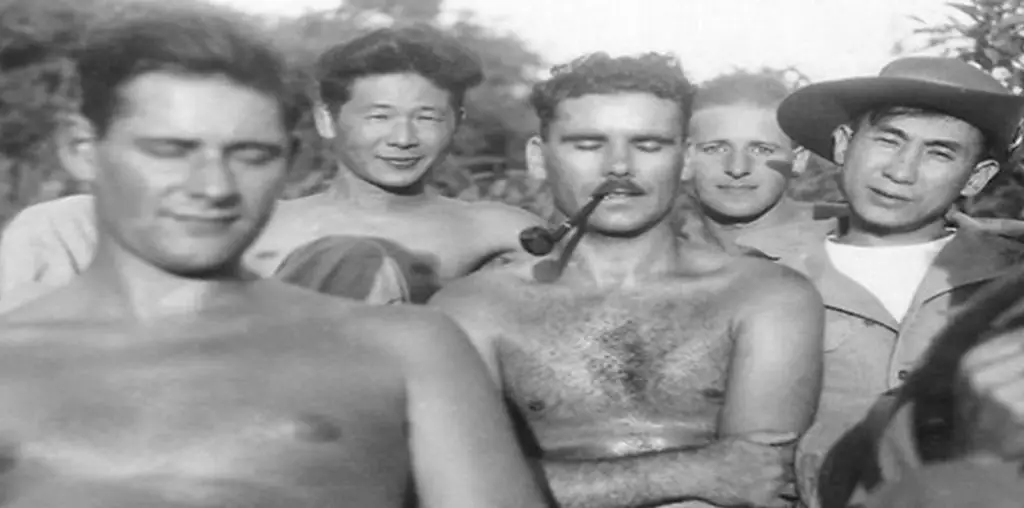
[ On Juliane Koepke: ] ^ “It is not only a film of her, it’s a film on something deeper, and part of it is of course her relationship to nature, and how to cope with it, and how to live, and how to survive, and how to do it right. There were press reports that speak of two miracles. One of course is an evident miracle; how do you survive a fall from three miles up? There is a miraculous element in it, even though other people have survived falls from aircraft before her. But the second miracle is not a miracle, it has a name, and that is Juliane Koepke. She did everything right. I like her attitude, I like her a lot, and I would not be able to make a film about someone who I didn’t really like. ^
[ On the crash that could have killed him: ] ^ “Of course I remember everyone (in the crew) very well, because I flew this aircraft at least 20-25 times. It was the least expensive airline we could find. And I remember that I kept joking with the stewardesses. I would always sit at the window, if I ever could I would sit at the window, because I wanted to see the Andes and the beginning of the jungle. But before the seatbelt signs were off, I would unbuckle and rush back to the stewardesses. There was in this Lockheed Electra this very strange sort of lounge back there, two leather couches. And I would ask them for a whisky, and I kept joking with them, and I told them, “Well, I do not smoke, I do not booze, I do not go to the whorehouses — my only vice is death.” And they really laughed about this, and I thought that it was a fine sort of thing to become friends with them. And they all laughed, and a fortnight later they were all dead.” ^
[ On the jungle: ] ^ “My relationship to the jungle is not scientific, but I think I have an attitude which is to an equal extent not romanticized. I can’t stand this romanticization of the jungle, and I have spoken out against this romanticization of the jungle, and I’ve spoken out in particular against Klaus Kinski, who found everything erotic, and would hug a tree, which I just couldn’t bear, I couldn’t see that. And it was just for the cameras, and he would just stylize himself, even though he never went into the jungle. For months and months, he never went even 30 feet into the jungle; only if there was a photographer around he would do that — his attitude was always more important. And I kept challenging him, and I said, ‘The jungle is not erotic, it is obscene. The jungle is obscene and it is full of asphixiation and struggle of survival, and the only common denominator is collective murder.’ And you can hear a wild statement about this in Les Blank’s film “Burden of Dreams,” where I get very explicit. And last Friday I published a manifesto in Minneapolis, which is called the Minnesota declaration. And it’s about fact and truth in documentary film, or in film in general. And in this declaration, this manifesto, I have some wild paragraphs against Mother Nature.” ^
[ On the difference between making narrative and making documentaries: ] ^ “There is not much difference; I stylize both. The lines are blurred, and in this film, many things are invented, but for the sake of truth, because there is something mysterious and elusive in cinema, in particular, in documentary cinema. An elusive, poetic, and what I call ecstatic truth. And you can only reach it by fabrication, by invention, by stylization. For example, the end of the film is totally stylized, totally made up, totally invented. Her dreams about the broken faces — totally invented. Her dreams about the frozen animals — totally invented. And yet, they belong to her. It’s her innermost existence. It is her ecstatic truth, something that is beyond cinema veriti. Cinema veriti touches only a superficial stratum of truth, and there’s something deeper. Cinema veriti, I keep saying, is the truth of the accountants. There’s something deeper. And I’m annoyed, and I can’t take it any longer when I switch on television and I see these pseudo-documentaries. I just can’t stand it anymore, and I just try to put something against that, and that’s why I’m so inventive. And this is why the borderline between narrative films and documentaries is not very clear in my case.” ^
[ On television: ] ^ “I’m sick and tired of watching American television where everyone for every single little incident breaks out in tears and collapses in emotions. I just can’t stand it any more. This is one of the reasons why German television hates the film. They told me, ‘Why doesn’t she (Koepke) break down when confronted with the fragments of the airplane?’ And I said, ‘Because she is a strong woman.’ They wanted to have this kind of television, this kind of indiscretion that I hate about television. It’s not about American television alone, it’s worldwide, it’s a phenomenon that the media, particularly television, has become an embarrassment of indiscretion and nobody realizes that discretion is a virtue. And the entire thing with Clinton and Monica Lewinsky is based on the fact that everybody blurts out whatever happens; it has to be publicized. And I can’t see the American soldiers returning (from Kosovo), and the soldiers now crying, and I just don’t like it. So thank God she’s not breaking down, thank God she’s not crying. I thank on my knees that she didn’t do it, even though television would have liked to see that.” ^
Check out FILMTHREAT.com’s INTERVIEW ARCHIVES and read hundreds of fascinating in-depth interviews with directors, filmmakers, actors and celebrities from the world of film!
